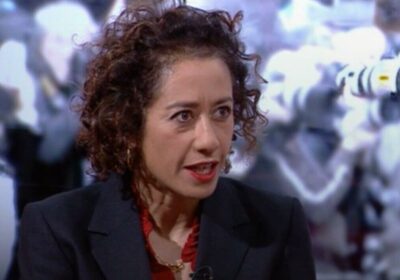BBC News sparks backlash over ‘tawdry’ Nicola Bulley coverage

BBC News blasted for 'tawdry' Nicola Bulley coverage
We use your sign-up to provide content in ways you’ve consented to and to improve our understanding of you. This may include adverts from us and 3rd parties based on our understanding. You can unsubscribe at any time. More info
The 45-year-old was identified from her dental records, a coroner confirmed on February 18 when an inquest into her death was opened. Her body was found by two dog walkers about a mile away from where the mother-of-two went missing. Nicola’s disappearance was heavily covered on news channels and the BBC has now addressed the criticism it received for its “tawdry” reporting.
BBC Breakfast’s Newswatch reporter Samira Ahmed told viewers on Saturday Nicola’s family described the work of some journalists over the past month as “absolutely appalling”, picking out ITV and Sky News for particular criticism.
However, BBC News viewer Rich Worton wrote: “Although BBC News can’t be held responsible for every ghoulish and disturbed theory behind Nicola’s disappearance, what was it that drove them to include the story on most of its major news bulletins?
“We are told hundreds of people go missing. What drove BBC News to prioritise this case over so many others?
“Your coverage helped transform a family’s tragedy into someone far more tawdry.”


He continued to say it is not dissimilar to people “rubbernecking at the site of a road traffic collision”.
Rich urged the BBC to “bear some responsibility” following its coverage of the late mother.
It was widely reported Nicola had issues with alcohol due to her struggles with the menopause.
Nicola’s family issued a statement saying they felt the investigation had become more about “speculation and rumours” than finding her.


The decision to include Lancashire Police’s comments about alcohol difficulties attracted a lot of anger from the public.
Another BBC News viewer called Dawn Jones said: “The BBC repeats and repeats Nicola had a substantial drinking problem due to menopause.
“I can’t imagine why they think this is a reasonable way to report.”
A third viewer, named Richard Davis, asked the BBC why it was “feeding the social media trolls with this unedifying and deeply distasteful news coverage”, stating it “was not in the public interest”.
After a body was found in the river, it took 30 hours for the identity to be confirmed publicly.
“During that time the BBC and other outlets continued to report from the village,” Samira added.
She asked BBC News’ director of news content Richard Burgess why so much attention was given to Nicola’s case when hundreds of people go missing in the country each year.
He replied: “I think the case captured people’s imagination and we certainly saw that from the audience numbers we get.
“I think that was because people had huge sympathy for the family, they could also relate to Nicola and to Nicola’s story.
“There was also an element of uncertainty around the circumstances of her death and I think for that reason there was a story which gathered a lot of attention.”
He insisted he was careful to “do the right thing” in regard to the tone of the coverage and wanted to respect the family’s right to privacy.
Richard added: “Friends and family wanted some publicity to find Nicola and gave it to the news and the media to that effect, but there is a balance isn’t there?”
BBC Breakfast airs daily from 6am on BBC One.
Source: Read Full Article